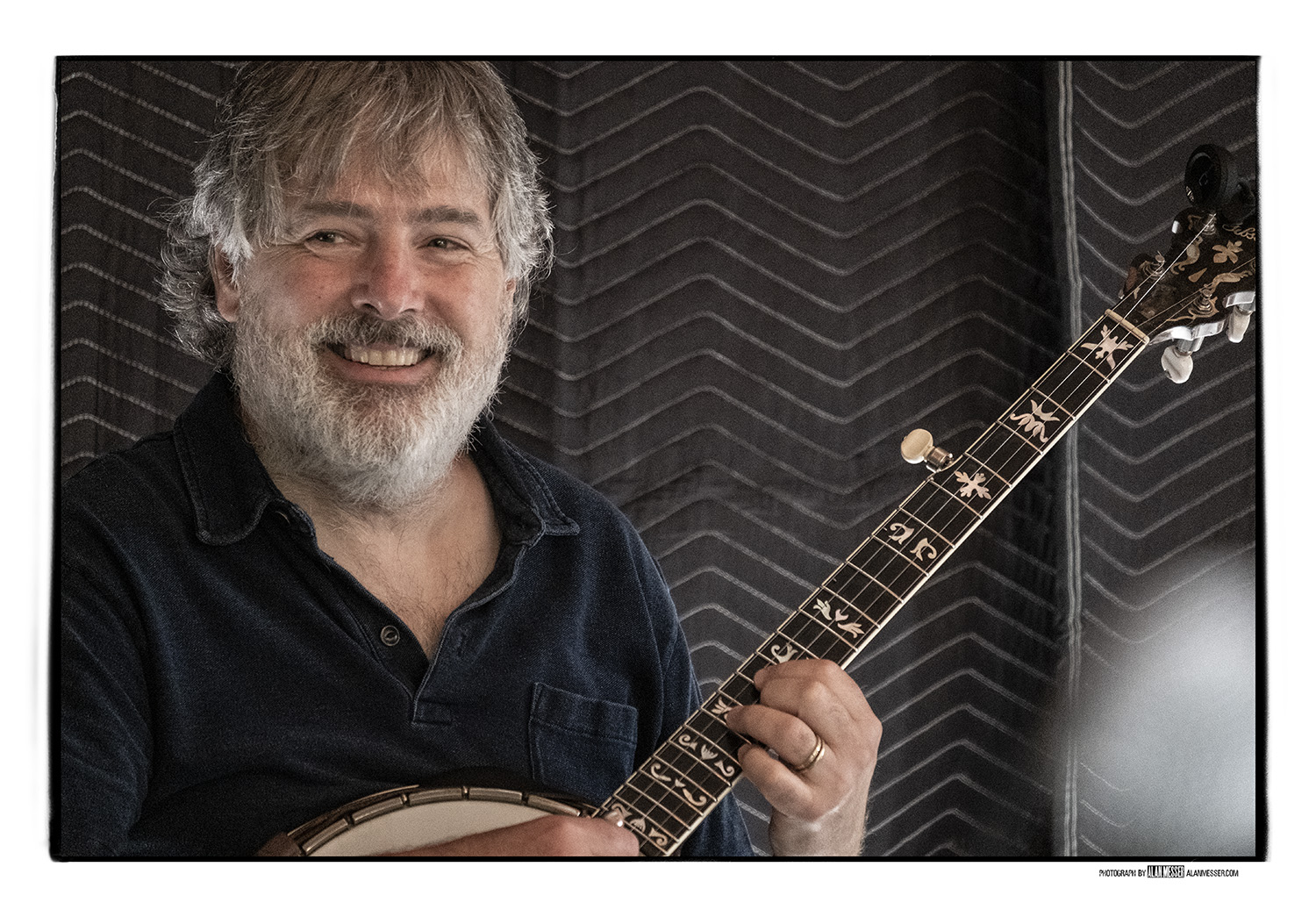

Béla Fleck (photo by Alan Messer)
Béla Anton Leos Fleck is a man on a mission — to expand the scope of the banjo.
An acclaimed virtuoso, he is an innovative and technically proficient pioneer and ambassador of the banjo, bringing the instrument from its bluegrass roots to jazz, classical, rock and world music. He is best known for his work with the bands New Grass Revival and Béla Fleck and the Flecktones. He has won 15 Grammy Awards and been nominated 33 times. In 2020, he was inducted into the International Bluegrass Music Hall of Fame.
Regional audiences have the chance to hear his banjo’s foray into classical music, when he and the Symphony of the Mountains perform his “Juno Concerto” Sept. 24.
Fleck is named after three classical composers, Bela Bartok, Anton Webern and Leos Janacek, and was born in New York City. One might think that classical would have been a more natural fit than bluegrass. They would be wrong.
At the age of 15, he received his first banjo from his grandfather. During the train ride home, a man volunteered to tune the banjo and suggested he learn from the book “How to Play the Five String Banjo” by Pete Seeger.
“I heard Earl Scruggs on the ‘Beverly Hillbillies’ theme, and it shook me up — even in New York City. Earl was the trigger, he has turned so many of us on. I don’t come from the South, and I always felt like there were people who were more truly focused on doing that bluegrass thing really well. What I tended to want to do more was expand the banjo’s role and look for new things to do with it. Despite that, I was always a bluegrass guy first and foremost. That was certainly the root of my musical soul,” Fleck says.
While bluegrass is the root, Fleck has explored jazz, rock, world and classical music. He’s collaborated with jazz legend Chick Corea, the Brooklyn Rider String Quartet, Zakir Hussain, Rakesh Churasia and Edgar Meyer. He also explored the African origins of the banjo in an award-winning 2009 documentary “Throw Down Your Heart.”
His latest expansion into classical music is the “Juno Concerto.”
Fleck says that “Juno” was sparked by impending fatherhood.
“I was taking note of the fact that life would never be the same from the moment he was born. It did impact what was important to me artistically.
“I look at classical as an opportunity to do things I can’t achieve in improv. I like that it’s quite different, and I don’t want to make it more the same ... so I can explore an idea on paper and imagine everything possible, which you can’t do when you are playing what comes to you in the moment. Both have their strengths. I was excited for the creative opportunities and the challenge of writing a long work featuring so many instruments. It fits my mission of looking for new ways to liberate the banjo from preconceptions and incorrect stereotypes. And I am musically inspired by the types of virtuosity and the harmonic possibilities presented by composing rather than improvising.”
Fleck is well known for his collaborations and working with a symphony is simply another collaboration for him. But in this one, he’s the guest artist, not the leader — an unusual role for him, but one he relishes.
“As long as there is great communication between us, I love it. It’s fun to see how they hear it, and where I can be flexible and where I can’t. I’m always experiencing fresh input. That can only be good, if one has a strong sense of self,” he says.
Tickets for the concert are $35 and may be purchased at symphonyofthemountains.org.